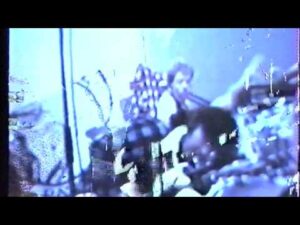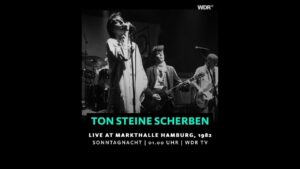Formation & Members
The Slits, a pioneering punk and post-punk band, emerged from the vibrant and often chaotic British punk scene of the late 1970s. Formed in 1976, the band was initially composed of Ari Up (Ariane Forster) on vocals, Palmolive (Paloma Romero) on drums, Kate Korus on guitar, and Suzi Gutsy on bass. However, the lineup that gained the most recognition featured Ari Up, Viv Albertine on guitar, Tessa Pollitt on bass, and Palmolive, who would later be replaced by Budgie on drums. The Slits were notable not only for their music but also for the significant role they played as women in a predominantly male-dominated punk scene.
Musical Style & Characteristics
The Slits’ music was a revolutionary blend of punk’s raw energy and the syncopated rhythms of reggae and dub, setting them apart from their contemporaries. Their sound was characterized by a playful yet confrontational approach, embracing a lo-fi aesthetic that resonated with the punk ethos. Ari Up’s distinctive vocals were both commanding and childlike, often delivering lyrics that challenged societal norms and gender roles. The band’s incorporation of reggae influences was particularly innovative, as it brought a new dimension to the punk sound and reflected the multicultural environment of late-70s London.
Key Works & Discography
The Slits’ discography, though relatively brief, left a lasting impact on the music world. Their debut album, “Cut,” released in 1979, remains a seminal work in the post-punk genre. Produced by Dennis Bovell, “Cut” featured tracks like “Typical Girls” and “Instant Hit,” which showcased the band’s unique fusion of punk and reggae. The album cover, depicting the band members topless and covered in mud, was as provocative as their music, challenging conventional notions of femininity and punk imagery.
Their follow-up album, “Return of the Giant Slits,” released in 1981, continued to explore experimental sounds with even more pronounced reggae and world music influences. Although it did not achieve the same commercial success as their debut, it further cemented their reputation as innovators. The band’s discography also includes several singles and EPs, such as the “Man Next Door” single, which highlighted their reggae roots.
Influence on Other Bands/Scenes
The Slits’ influence extends beyond their immediate punk and post-punk circles. Their fearless approach to music and self-expression inspired countless female musicians and bands, paving the way for future generations of women in music. Bands such as the Raincoats, Bikini Kill, and Sleater-Kinney have cited The Slits as a significant influence on their sound and ethos. The Slits’ integration of reggae into punk also opened the door for other bands to explore cross-genre experimentation, influencing acts like The Clash and Public Image Ltd.
Moreover, The Slits were part of the broader social and cultural shift that punk represented, challenging not only musical conventions but also societal norms regarding gender and race. Their impact is evident in the continued evolution of punk and alternative music scenes worldwide.
Breakups or Reunions
The Slits disbanded in 1982, not long after the release of their second album. The breakup was attributed to various factors, including internal tensions and the changing music landscape of the early 1980s. However, their legacy endured, and in 2005, the band reformed with original members Ari Up and Tessa Pollitt, joined by new members including Hollie Cook on keyboards and backing vocals.
This reunion led to new recordings and live performances, culminating in the release of “Trapped Animal” in 2009. The album was well-received and demonstrated that The Slits still had the ability to innovate and challenge audiences. Sadly, the reunion was short-lived due to the untimely death of Ari Up in 2010, which marked the end of The Slits as an active band.
Current Reputation & Legacy
Today, The Slits are celebrated as trailblazers who defied the norms of their time, both musically and culturally. They are often credited with helping to shape the trajectory of punk and post-punk music, influencing a wide array of genres from indie rock to alternative and beyond. Their pioneering spirit and refusal to conform have made them icons of feminist punk, with their music continuing to resonate with new generations.
Their influence is seen in modern bands that incorporate genre-blending techniques and embrace a DIY ethos. The Slits’ story and music have been revisited in documentaries and retrospectives, ensuring that their contributions to music history are not forgotten.
Conclusion
The Slits were more than just a band; they were a movement that challenged the status quo and expanded the boundaries of what punk music could be. Their innovative sound, bold imagery, and unapologetic attitude left an indelible mark on the music world. While their time together was relatively short, their impact continues to be felt across the musical landscape, inspiring both musicians and fans alike. The Slits remain a testament to the power of music as a tool for change and expression, and their legacy will undoubtedly influence future generations of artists.









